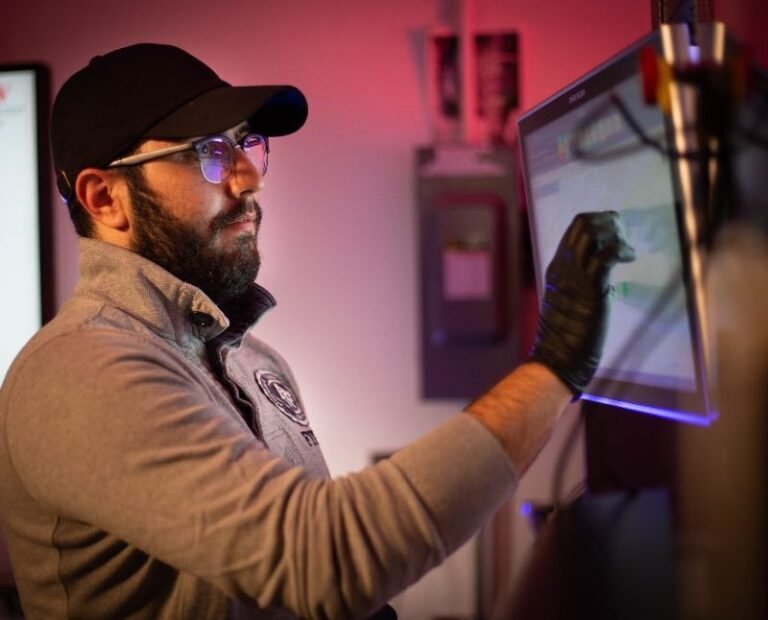Illinois Institute of Technology has received a substantial grant from the National Science Foundation (NSF) to launch a pioneering education program in sensory technology aimed at underrepresented groups—particularly veterans.
The initiative, funded through NSF’s Experiential Learning for Emerging and Novel Technologies (ExLENT) program, underscores Illinois Tech’s commitment to critical future technologies and expanding education to groups that have historically faced barriers.
The new program, Sensor Technology for Experiential Learning, has received over $875,000 in NSF funding and aims to prepare students for industries such as healthcare, defense, space, and environmental control. The nine-credit certificate program combines mentorship and hands-on training in sensor science and technology. The program is open to all students, but only veterans will be eligible for tuition coverage under the grant.

“We will provide experiential opportunities and training for traditional and non-traditional adult learners,” says Illinois Tech Professor of Chemistry Rong Wang, the project’s principal investigator. “Veterans are unique. They are among the first to adopt new technologies as they have used some of the most sophisticated technologies (advanced defense equipment) in the world. However, military experience and training are frequently not the perfect match of skills needed to perform the jobs today.”
Wang continues, “In coming back home to reconnect with civilian life, veterans actively look for reskilling opportunities. Our certificate program will offer the training which helps close the gap for a well-paid job. The program will prepare the participants to establish the technical capability in combined areas of advanced manufacturing, artificial intelligence, biotechnology, environmental control, semiconductor and microelectronics—the technical areas the country is promoting. With the NSF grant support of Illinois Tech’s ExLENT program, veterans are offered a career path to successfully transition into civilian life while contributing to a highly demanded workforce to address the country’s immediate needs.”
The certificate program is designed to complement a student’s chosen degree path or a veteran’s experience with specific knowledge of sensor technology that they can apply to their area of expertise, whether it’s chemistry, physics, biology, food science, computer science, biomedical engineering, electrical engineering, information technology, or any number of various other fields.
In addition to Wang, Illinois Tech Associate Professor of Electrical and Computer Engineering Erdal Oruklu, Professor of Psychology Eun-Jeong Lee, and Department of Chemistry Chair Yuanbing Mao will be involved in the interdisciplinary program.
The three courses are meant to be completed in eight to 12 months, including an internship at one of six local partner companies. Wang expects the list of industrial partners to grow as the ExLENT program continues to develop, especially considering her role as director of the International Center for Sensor Science and Engineering.
Wang anticipates that about 10 students per year will earn certificates. She hopes that the program’s initial success will lead to industrial partners paying for students’ internships after the grant funds for the ExLENT program end after 2026.
Illinois Tech is among the 27 teams at U.S. institutions of higher education that received the NSF’s first ExLENT investment “to expand practical learning opportunities and grow talent nationwide.”




